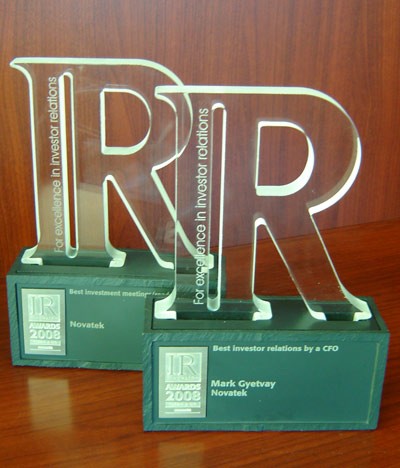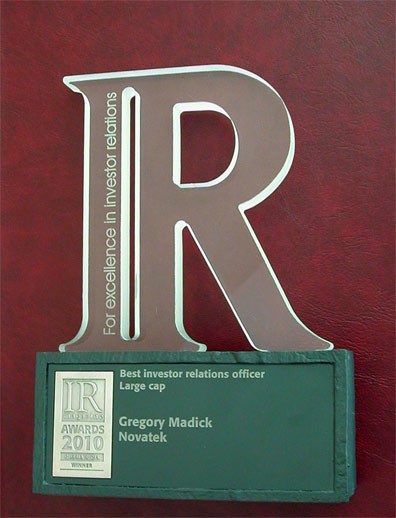IR Magazine
Post on: 5 Апрель, 2015 No Comment

June 1, 2003 | By Ian Williams
AR Schmeidler is a small buy-side player that takes a big picture view of potential investments
Arnold Schmeidler, founder of AR Schmeidler, once considered a career as a classical pianist, and still plays when he is away from the more discordant notes of Wall Street. Since 1971, he has been running his own buy-side firm and has managed to retain some of the same clients for over 30 years.
‘We have very little turnover,’ he says with modest pride. ‘A tax-exempt account we got in 1975 that started with about $1.5 mn is now about $31 mn, even though every quarter for quite a few years they’ve taken out $750,000. That’s what happens with the compound returns. They’ve never added money in fact they took some out to give another fund manager a chance.’
Joined by John Wyman, executive vice president of the firm, Schmeidler sat down with IR magazine to explain AR Schmeidler’s investment style. Wyman joined the firm in 1984 and despite the numinous date, their frank opinions clearly eschew any sign of Orwellian doublespeak.
The firm has never openly solicited new clients. ‘We don’t advertise,’ says Schmeidler. ‘We have a web site (www.arschmeidler.com) where people can read and subscribe to our Outlook newsletter, but our growth has been through word of mouth.’
AR Schmeidler’s clients range from high net worth individuals ($1 mn minimum investment) to pension funds and foundations, and each account is handled separately. ‘Most of them are discretionary, but that doesn’t mean we can do whatever we want with them, whenever we want to,’ Schmeidler explains. ‘We have a great deal of telephone communication with our clients.’
Investment wisdom
A long-term market outlook is at the heart of the firm’s investment strategy. ‘I’ve been in this business since 1960, so I have been through many cycles,’ notes Schmeidler. ‘And you still make mistakes. But it gives you wisdom and experience that guys in their 30s may not have.’ Wisdom such as understanding the current environment and knowing how to deal with it, Schmeidler adds: ‘We’re going through a bear market but we anticipated it a long time ago, even though it was not generally recognized.’
Experience also expedites investment decisions. Because Schmeidler has looked at many companies in so many industries over the last 40 years, it’s fairly easy ‘for us to get going on an idea,’ he says. ‘Chances are we have visited this or that company more than once in the past. So our turnaround can be very rapid and gives us the ability to ask management the salient questions.’
‘The virtue of a professional manager is that he can take much of the emotion out of investment decisions,’ Wyman ruminates. Individuals tend to hold back and wait for confirmation, but that confirmation comes at a higher price, he adds. ‘They will say Should I buy that at $20, when I could have bought it at $15 and it’s up from $10? Then they finally throw in the towel and the price is still higher.’
‘But as professionals, we know a lot more about these companies than the average investor, who only sees numbers going up or down,’ Wyman continues. ‘And lately all they see every month is down, so they get very anxious and end up doing the wrong thing at the wrong time, which is to liquidate.’ Which of course millions of shareholders have done.
Buying cash flow
AR Schmeidler’s team didn’t sell, though. ‘Professionals shouldn’t be tempted to be sellers in those circumstances; they should be looking at the opportunity to buy,’ notes Schmeidler. ‘But when investors sell mutual funds, whether their managers like it or not, the funds have to liquidate, and end up selling at the wrong time and buying at the wrong time.’
Schmeidler does not anticipate market equilibrium any time soon. ‘It will be another extreme. All that cash is going to start flowing to the areas where you can get the highest returns with quality.’
Schmeidler defines quality as companies that have leading market positions, which are undervalued in relation to cash flow, assets and earnings. ‘We’re big buyers of cash flow,’ he comments. ‘We want to buy as much cash flow, earning power, as many assets that benefit from the major themes for as few dollars as possible.’
Those themes have included defense even before September 11 technology, and more recently gold, which has vindicated this fund management firm’s long-term view by soaring to new heights. ‘We’d never invested any significant amount of money in gold stocks in all the years we’ve been in business until this year; we now have a very keen interest in them,’ says Wyman.
Attention to the global picture does not diminish attention to their golden rule: the client always comes first. ‘We have no conflicts of interest,’ chimes in Schmeidler. ‘We are not and have never been investment bankers so we have never had the conflicts that are now front page news.’
Individual tastes
Individual accounts reflect individual preferences. ‘Some people are sensitive to volatility, some want growth. Some want income, and so we cut them a check every month,’ says Schmeidler.

Accounts also reflect clients’ social principles. ‘One area we never invested in was tobacco,’ says Schmeidler. ‘Statistically, the yields are pushing 10 percent but this is a very litigious society.’ He adds, ‘If the environment is a major theme then it would be a major mistake for us to invest in companies that mess up the environment. They’re just going to get sued. You don’t want to put yourself in the path of a big negative. It makes more sense to invest in a company that has similar numbers without the threat.’
The firm does not go to foreign markets, let alone emerging markets, but that does not mean they take their eye off the globe. ‘We do invest in ADRs traded in the US,’ Schmeidler qualifies. ‘We invest in multinationals that have alliances and operations in foreign countries. If we think China is a great place to invest, but we are unhappy about the accounting there, we won’t invest our client’s money in China. But we will invest in a company that benefits from China, as do a lot of technology companies that we invest in.’
‘For example, China Telecom is building up its infrastructure, so we will buy companies that sell them what they need,’ adds Wyman.
Holistic approach
So how do AR Schmeidler’s managers pick their stocks? ‘To begin with, we read a lot beginning with the Financial Times, a fabulous paper that has a lot in it that never hits US papers or, if it does, it’s late and filtered,’ says Schmeidler. When they spot an interesting idea, they do some initial research and if that proves promising, a call to the company comes next. ‘Then we find out when they are coming to New York and tell them we want to chat.’
The meetings can last ‘from one to two hours, with them talking about their business, and about how they view the world,’ says Schmeidler. A lengthy meeting helps develop a picture of the company’s long-term strategy. ‘It’s not what they’re doing in the next quarter, and they are not going to tell us. But how do they view the competition? How do they view the product cycle? There are a host of questions. The financials maybe they have some debt due in two years; how do they view that? How do they view the cost of capital?’
‘We ask the kind of questions we would ask if we wanted to own the whole business,’ adds Wyman. ‘They like us a lot, and for a basic reason. We generally don’t want to trade their stock, we want to build long-term positions, and so we are good long-term investors rather than speculators. They love that.’ AR Schmeidler, Wyman says, ‘prefers to meet those who ultimately make the decisions and who have all the knowledge the CEOs, CFOs and so on.’
‘Some investor relations people are very valuable but they’re not on the firing line in the same way,’ says Schmeidler. ‘Still, we’ve had experience with some fabulous IR people and the best of them sound like they can run the company.’
But one of the advantages of talking to the heads of the companies is that when ‘they see how we look at the world, and how we manage money, they sometimes become clients. And then, through them we get the opportunity to manage their pension plans.’
For buy-siders like AR Schmeidler, Reg FD has made life simpler. ‘We know everybody is on a level playing field and if something is going on, maybe there is an article somewhere or maybe it’s unfounded rumor,’ notes Wyman. But the ability to go to the webcast makes life for a fund manager much easier, he adds.














